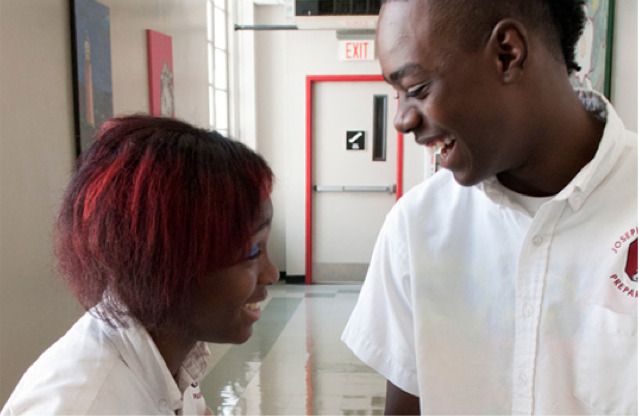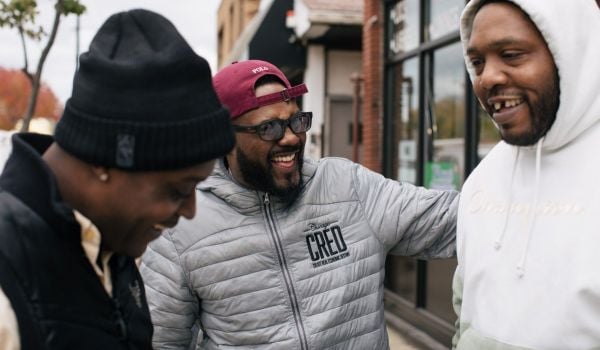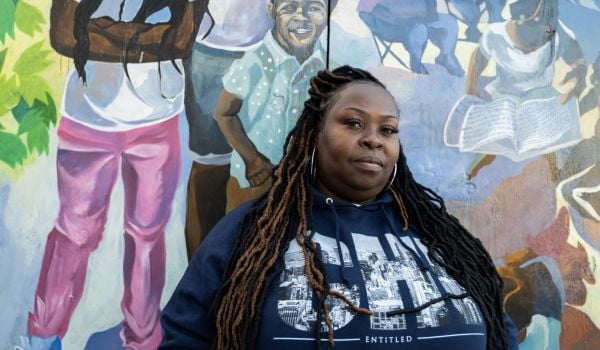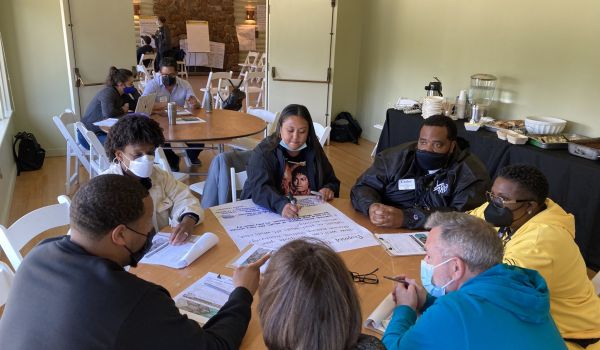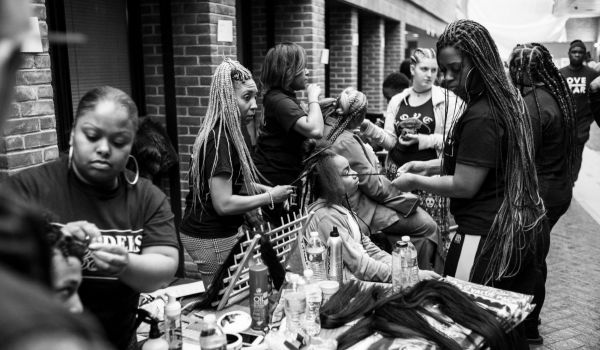“Ms. Sather, Ms. Sather, Ms. Sather. What’s good?” A tall, lanky boy popped his head into my office. “You doing alright today?”
“I’m just fine, Leonard,” I said. “How are you?”
“I’m in this,” he said, squeezing my shoulder. He disappeared down the hall, limbs bouncing, like he did every morning. A few hours later, he was dead.
Leonard was gunned down, along with his mother and sister, in their New Orleans garage in the early hours of a hot morning earlier this month. He had his demons — run-ins with the law, an explosive temper, a list of long-standing neighborhood feuds — but he also had strength, humor and love. He was trying like hell to find a life that felt safe. He just didn’t get there fast enough. He was the second student of mine to be killed in the last three months.
Isaiah — ’Zay to those who knew him — was murdered in July. He was found facedown in a parking lot in Eastern New Orleans, shot in the face. He was alone. He hadn’t been to school in weeks, and the last time I saw him, his eyes were on fire with some combination of mental illness and pills he shouldn’t have been taking. ’Zay was as far from perfect as any of us, but he also longed for a peaceful, happy life. He told me that his dream was to find a girl he could love and job he could feel good about. He just couldn’t calm the storms in his mind long enough to find it.
I was their teacher, and I failed them. We all did.
I am in my eighth year as an educator, my sixth in New Orleans. I work at an alternative high school called The NET Charter High School. I am one of thousands who came to my career through Teach for America, and one of many who have found themselves conflicted about the organization and the reform movement as a whole. I have read all the blogs. I have engaged in passionate debates about what works and what doesn’t. I imagined that I was being thoughtful and productive through those conversations. I don’ t think that anymore.
I no longer care about winning the debate. I don’t care about charter versus public. I don’t care if Teach for America sometimes seems to have more to do with politics and self-promotion than with kids. I can’t look at PowerPoints discussing the relative merits of blended learning, or whether the Common Core Standards are the second coming. I just want kids to stop dying.
We are deluding ourselves if we think one policy or program will fix youth violence. College readiness won’t fix it. Data-driven instruction won’t fix it. Caring relationships alone are not enough. If New Orleans — and other cities around the country— wants to realize the promise of a revolution in education, there must be a willingness to acknowledge that a single approach can never address the complex and varied issues that face our kids and families.
Comprehensive mental health care and counseling wrap-around services are the ideal, of course, but building that infrastructure takes time and money. Until we get there, we must agree that there is no one perfect school — and it doesn’t matter if I fail with one student, and someone else succeeds. The important thing is the success itself.
I’ll admit I’ve been guilty of speaking negatively about colleagues. I’ve been frustrated and made sweeping statements. I’ve felt superior, as if I were the one who “got it.” For that, I am truly sorry. My desire to be right about anything in education died with ’Zay and Leonard.
Instead, I offer this: The fractured landscape of charters has led to isolation and poor communication. It is not uncommon for a New Orleans student to attend four or five schools from kindergarten to the 12th grade, particularly if he or she struggles emotionally or behaviorally. Students who need consistency the most are the ones most likely to bounce from school to school. It’s not surprising that in the shuffle of paperwork and disciplinary hearings, those with the greatest need often slip by.
We need clear, open lines of communication, transparent record keeping and, above all, we need to admit when to tap out. It makes sense that a student with a severe emotional disturbance might need an environment vastly different than one in which a student who doesn’t share those struggles can thrive. It doesn’t mean something is wrong with either the student or the school. The student simply needs something different.
New Orleans’ move toward school choice in an admirable one — parents and students should have the right to attend a school that offers them the best chance to be successful. However, in order to make this choice meaningful, there must be options that actually offer something different. It makes no sense to argue that a student who has been consistently unsuccessful in one environment, despite numerous interventions, should continue to stay there.
Instead, imagine school leaders sitting with students and parents and offering them an alternative — a place where they could try again, in a completely new setting, a place where their unique needs could be met. This would serve not only the students in need of a change, but also those for whom the original setting was sufficient.
Our kids at the NET come from all over the city, and most of them are similar to Isaiah and Leonard. They have significant struggles: Homelessness, mental illness, trauma, learning disabilities, the list goes on. The greatest common denominator, however, is that the school, for whatever reason, hasn’t been working for them.
Our approach is to create a small, safe environment with individualized plans for each student. We offer shortened schedules, opportunities for internships and, as the kids will tell you, we are all up in their business. The cornerstone of our program is restorative justice, and we are serious about having a million conversations with kids about what to do when you mess up. It’s not the right place for every kid, but it’s the only place that has worked for some of them.
Across town, ReNew Accelerated High School works with a population that’s very similar to ours. But it offers mostly online classes, and does an excellent job of helping students catch up to be on track for graduation. Again, I wouldn’t recommend it to every student, but there have been kids who really struggled at The NET and who are now thriving there. I couldn’t be happier.
But we need more options. We need a therapeutic environment for students who struggle with the most significant mental illnesses and emotional disturbances. We need more arts magnets and math- and science-focused schools. Building enclaves of excellence in different disciplines and approaches across the city could be the key to keeping more students in school — which means helping to keep them alive.
I realize that politics can’t and won’t stop. In many ways they are necessary. But I ask that the next time you feel tempted to cut down the work of someone else because it doesn’t match your talking points, that instead you take a moment to say the names of these boys to yourself. Isaiah. Leonard. And the countless other young men and women who have lost their lives to violence. They died while we were arguing. We can do better.
Claire Sather is the academic dean and response to intervention coordinator at The NET Charter High School.

